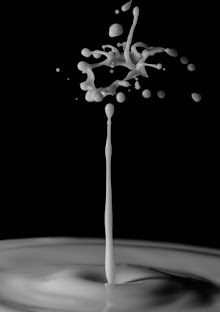
Tips från Andres Lokkos krönika i Svd 2011-03-13.
Recensionen ur The Guardian 2009-03-07
by Christopher Reid
There's certainly no shrieking reproach in A Scattering, Christopher Reid's latest collection, dedicated to the memory of his wife, the actor Lucinda Gane (whom readers of the right age will remember as the science teacher Miss Mooney in Grange Hill). But neither has he been rendered wordlessly impotent. Rather, he gives us a lucid, cogent panorama of grief and loss, from the first diagnosis of illness to a provisional - it never could be final - acceptance of his enforced membership of "the club of the left-over living". These are calm, careful, coolly self-contained poems, but they invite the reader in without reserve. If there's a sense of something being worked out here, Reid's engagement with the process of bereavement, as both husband and poet, only helps to prove the aptness of Donne's dictum, that "Grief brought to numbers cannot be so fierce, / For he tames it that fetters it in verse".
Reid's poetry has always delighted in confounding expectations. As one of the originators (with his one-time tutor Craig Raine, the publisher of this volume) of what James Fenton termed the "Martian" school, he makes the familiar strange through witty juxtapositions and wild, sometimes surreal imagery. This is how the title poem of his 1982 collection, Pea Soup, begins: "A hecatomb; / haruspication of pods ... / It is thus that we understand / our kitchen gods // workaday hierophants, / opening each green victim / with a neat jab of the thumb, / cascading entrails [...] / into a deep pan". It's a clever kind of poetry, skilfully constructed, often erudite, and just a little emotionally chilly. Though Reid's habitual wit does not desert him in A Scattering, that isn't a charge that could be laid against him here.
The book opens with "The Flowers of Crete" and a last holiday together, as he grapples with the fear of what lies ahead. Often, there's the sense that she is one step ahead of him, just out of reach, or threatening to be - an Ariadne who cannot, this time, provide the thread that will save her Theseus from his fate. So he turns to the inward consolations of writing, asking her to forgive "your husband the poet, / as he mazes the pages / of his notebook, in pursuit / of some safe way out"; while she, looking ever outwards, chases "to its least accessible hiding-place" every specimen in her guide to the island's wild flowers.
"The Unfinished" describes, simply and detachedly, the deathbed vigil. "I never heard / the precise cadence / into silence / that argued the end. / Yet I knew it had happened." Afterwards, with the same detachment of "ultimate calm", he quotes Wittgenstein, considers Auden, and tries to configure her death as a journey, though he knows it isn't, or is so only "in that space / of the mind where the wilful / metaphors thrive". Then he recurs to the final few days, telling it as straight as he can, refusing, for instance, to invest the disease that kills her with anything like human moral agency:
Hobgoblin, nor foul fiend;
nor even the jobsworth slob
with a slow, sly scheme to rob
my darling of her mind
that I imagined;
just a tumour.
There follows a series of vignettes, "A Widower's Dozen", that dramatise the accommodations and adjustments that the mind makes when faced with such loss: he talks to her about their garden, imagines that he hears her coming to bed or sees her in the street, endures the repeated jolting realisations that she's gone. It is perhaps odd that, faced with the ultimate dislocation, Reid is, in this book, at his least "Martian". Yet the old wit and erudition are still there. The collection's title, for instance, makes one think of a scattering of ashes, but not so: the title poem describes the way elephants perform a kind of obsequy for their dead by "hook[ing] up bones with their trunks and chuck[ing] them this way and that way"; the animals' ponderous bulk "makes them the very / embodiment of grief, while the play of their trunks / lends sprezzatura". That slightly waggish "sprezzatura" is a typical Reid flourish.
In "Afterlife" he walks past the hospital to which his wife left her body for research and thinks: "That's where my dead wife lives. I hope they're treating her kindly." This end, he finds, is greatly preferable to the shallow certainties of religion, because she is still "doing practical work ... educating young doctors / or helping researchers outwit the disease that outwitted her". Here, as throughout the book, the keynote is one of gratitude.
There's no self-pity, no beating upwards to God's throne here, just a kind of secular prayer of thanks, albeit one that performs the miracle of bringing the dead back to life. Reid conjures her brilliantly for the reader - her way of dressing, her somewhat scattered mental energy, her many enthusiasms. As an act of devotion, A Scattering perhaps proves the almost-truth of Larkin's almost-instinct at the end of "An Arundel Tomb", that what will survive of us is love. How fitting, then, that this beautiful book should begin and end in benediction; it is surely no accident that the opening and closing words are "blessing" and "blessed".






























